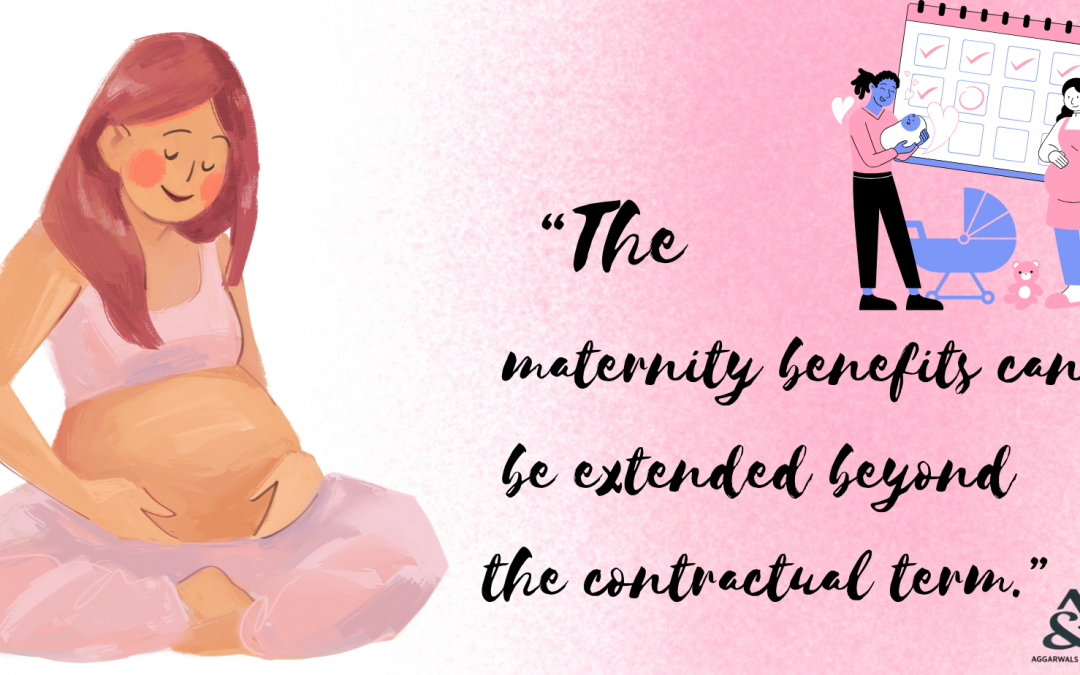“Fulfil the entitlement criteria specified in section 5(2) of the Maternity Benefits Act and get eligible for full Maternity benefits even beyond the contractual term”.
The Hon’ble Supreme Court of India upheld the above statement in a three-judge bench. Case: Dr. Kavita Yadav v The Secretary, Ministry of Health and Family Welfare Department & Ors (Civil appeal No. 5010/2023) on 17th August 2023.
WHAT ARE THE FACTS?
- The appellant is a pathology doctor and was appointed as the senior resident (pathology) on a contractual basis in Janakpuri Super Specialty Hospital, under the government of NCT Delhi. The appellant’s contract was dated to end on 12th June 2017 as per the conditions of the contract.
- However, she applied for maternity benefits from 1 June 2017 under the Maternity Benefit Act 1961. Eventually, the employer stated that she would only get 11 days of maternity leave, since her employment period is going to expire on 12th June 2017 and it cannot extend beyond the employment period.
- The appellant challenged the action of the employer and filed a complaint in the central administrative tribunal and eventually in the high court; however, her claim for the same was rejected by both the court, on the same grounds as stated by the employer.
WHAT WAS THE LEGAL ISSUED RAISED?
- Whether the maternity benefits as contemplated in Section 5(2) of the Maternity Benefits Act, 1961 apply to a woman appointed on contract if the period for which she claims such benefits overshoots the contractual period?
- If the period of employment is as per the conditions of the contract, can there be a notional extension of the period of employment?
WHAT WAS THE JUDGEMENT?
- The Hon’ble Supreme Court relied on several judgments. It opined that continuation of maternity benefits in the statute itself, where the benefits would survive beyond the cessation of the period of employment.
- In the case of the municipal corporation of Delhi v. female workers (muster role) & Anr.’ the point of argument was highlighted. It revealed the fact that regular women employees were extended the benefits of the act, but, not to those women workers who were employed on a contractual basis.
- The judgment emphasized Article 39 and more specifically 42 which fall in the ambit of directive principles of state policy and state that, a woman employee at the time of employment shall not be compelled to do hard labor. Also, the judges declared that we did not find anything credible in the act which states that only regular women employees are eligible for maternity benefits.
- The Hon’ble Supreme Court opined that the high court erred in holding that the appellant was not eligible for maternity benefits after 11 June 2023.
- The factual analysis of the provision led to the conclusion that after fulfillment of section 5(2) of the act, a woman employee is eligible for full maternity benefits even after these benefits exceed her period of employment.
- The main crux of the entire judgment was, that if the employee fulfills the eligible criteria for availing maternity benefits, i.e. she completes 80 days of employment, she will be eligible to avail of the maternity benefits even if such benefits exceed the duration of her contract.
- The Supreme Court set aside the judgment of the high court and the decision of the tribunal invalidated thereof.
WHAT IS THE SIGNIFICANCE OF THIS JUDGEMENT?
- We know that maternity benefits are a fundamental and integral part of the identity and dignity of a woman who chooses to bear a child. Thus the apex court gave a fabulous judgement about the rights of the contractual women employees.
- The benefits should be given on a timely basis and the discrimination based on permanent and contractual employment shall be curbed as much as possible, considering the development of female strata of the society and the economy at large.
Judgment reviewed by: Ajit Ranadive, Legal Intern at Aggarwals & Associates, Mohali


